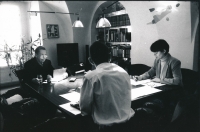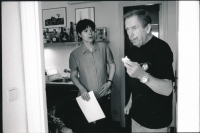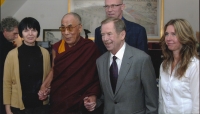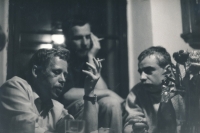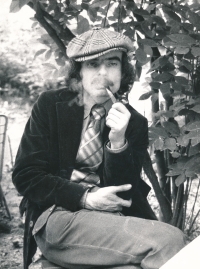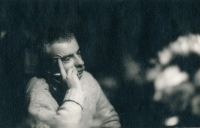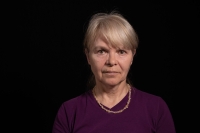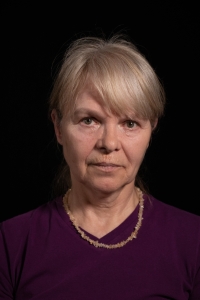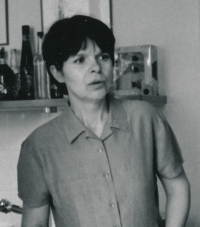It is important to always have a future

Stáhnout obrázek
Ivana Reichlová, born on March 1, 1955, grew up in Cvikov in former Sudetenland in the north of the country. Her German grandmother was spared the post-war expulsion thanks to her marriage to a Czech man. The witness describes her childhood in the mountainous region as isolated, but happy. She first started to be interested in politics following the Warsaw Troops invasion on August 21, 1968, when her worldview started to diverge from that of her parents‘. After graduation from the grammar school in Česká Lípa, she trained as radiology assistant and started to work at the General University Hospital in Karlovo square in Prague. Her first marriage, in which her daughter Barbora was born, was not happy and she got a divorce. As a single mother, she struggled to make ends meet, worked at a library, and cared for her daughter. Later, she started working as assistant director and stage manager in Ypsilon Studio theatre, where she met her second husband Jiří Reichl. During the Velvet Revolution, she witnessed the Civic Forum meetings at the Ypsilon Studio. After her second daughter Anna was born, she worked at the Czech Bar Association. Between 2006–2011, she was working at Václav Havel’s Presidential Office. In 2022, she was living in Prague.
